News
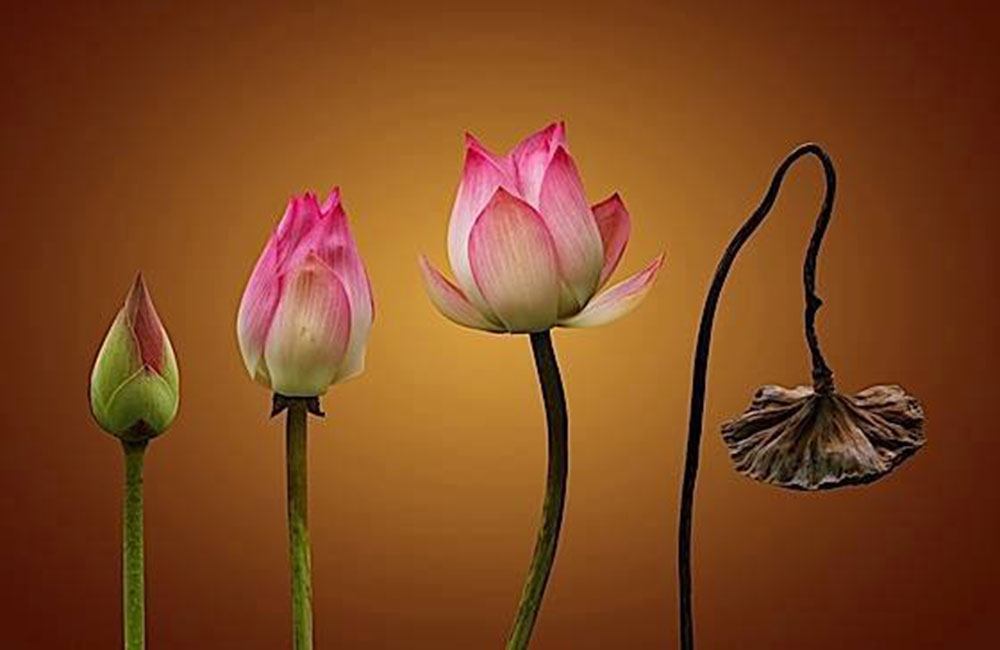
Former SLPP candidate arrested with Army uniforms, petrol bombs
Two individuals have been arrested during a joint search operation conducted by the Army and Police on a house in Narammala.
It was reported that the individuals had in their possession some petrol bombs, local military uniforms and foreign military uniforms.
According to sources, the head of the household that was arrested had contested the local government election in 2018 from the Sri Lanka Podujana Peramuna (SLFP).
Furthermore, the other individual that was arrested with him has been identified as his son, it was reported.
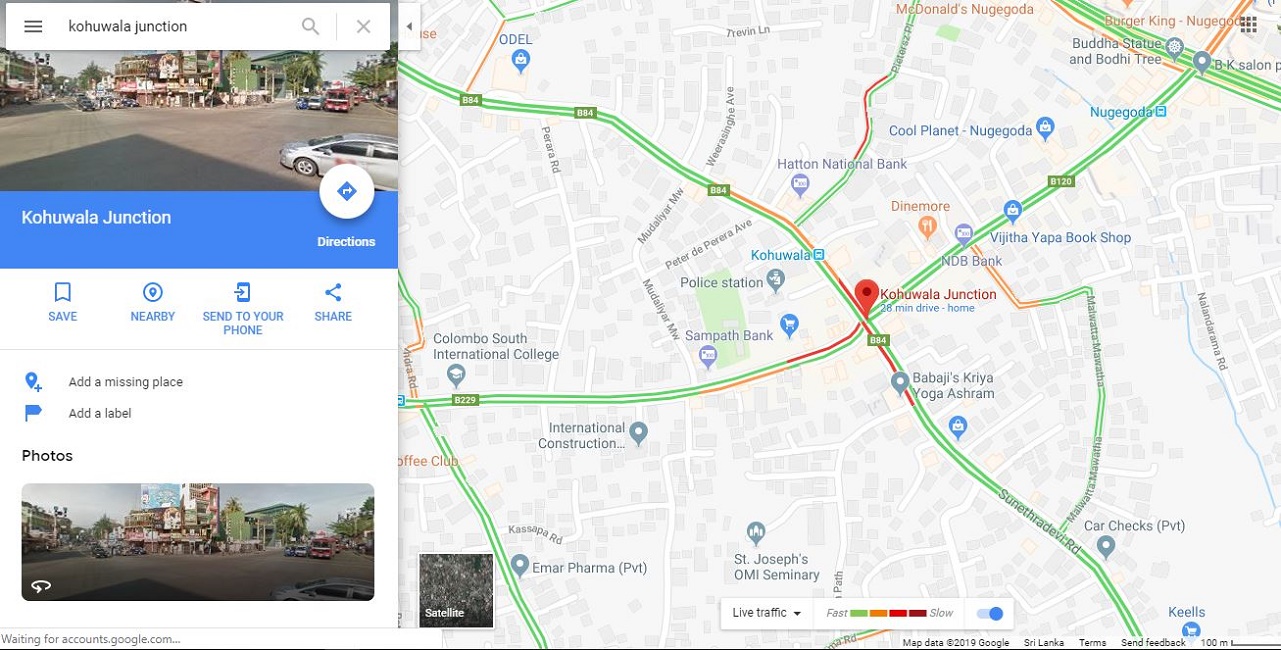
Two new flyovers in Kohuwala and Getambe
Cabinet approval was granted to construct two flyover bridges at Kohuwala and Getambe.
The proposal was submitted by the Minister of Highways, Road Development and Petroleum Resources Development, Kabir Hashim. Construction of the two flyovers will be carried out with the assistance of the Hungarian government.
The Kohuwala flyover will be constructed on Dutugemunu street to ease traffic on the Colombo- Horana road while the Gatambe flyover will ease traffic in Kandy.
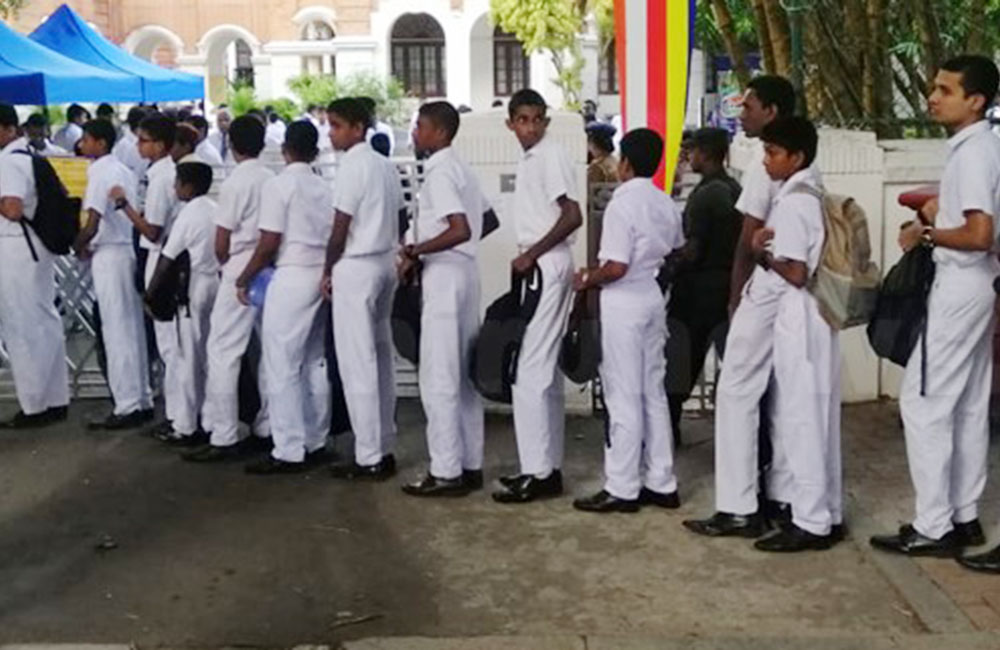
Schools back to normal
While attendance reaches normal levels in schools island wide after the assurance of the Army Commander, Lieutenant General Mahesh Senanayake, Minister of Education, Akila Viraj Kariyawasam pledged to install CCTV cameras in Government schools throughout the island and reiterated that the Ministry at present has no plans to postpone the exams scheduled for the next few months.
“The Examinations’ Department will have to hold a number of examinations in the coming months and we have no intention of postponing these exams only because parents refuse to send their children to schools. CCTV cameras are to be set up at all government schools island-wide in order to strengthen the security system. The Government would bear the project’s expenses,” said Kariyawasam speaking to the Sunday Observer last week. He expected that due to security measures taken jointly with the armed forces, Police and civilian School Security Committees (SSC), that 100 percent attendance will be achieved within the week itself.
The Ministry had issued clear instructions to school principals, to local, zonal, provincial and national education authorities and the local government authorities on ensuring the security of students, teachers and school property, and of action to be taken in an emergency. While the SSCs are tasked with the responsibility of checking those entering school, and surveillance of class rooms and school premises no circular was issued from the Ministry stopping children from bringing usual bags to school or ordering transparent bags to be brought therein, said the Minister.
“Children need not necessarily buy them although school principals order to bring them. This action has been taken in several Provincial Schools as a result of the authority given to Principals to take appropriate action in their particular schools to ensure the security of students and teachers,” said Kariyawasam. He advised parents not to fall into the traps laid by anti-government elements and trade unions to keep the national education disrupted forever and called for them to send children to school without fear.
Additional Secretary, Ministry of Education, Hemantha Premathilake confirmed that there is an increase in the attendance of students after schools started on May 21. “According to reports received from schools, island wide, it is clear that 85 – 90 percent of the students are back in school this week. Schools are back to normal.” The academic term both in schools and at higher education institutions returned to normalcy last week with the Catholic Schools, Universities and other tertiary education institutions reopening for the term on Tuesday, May 21.
Parents, principles and trade unions alike praised the Army Commander’s statement about strengthening the security of schools and encouraging parents to send their children to school. Noting that since the second school term started and the security forces are deployed with all security measures in place for students to attend schools many parents trusting unconfirmed stories, rumours and gossip are still reluctant to send their children to schools, Army Commander, Lt. Gen. Senanayeka said “At this juncture, I emphasise that since members of the Armed Forces and the Police on a priority basis have taken all necessary steps to ensure security arrangements for all schools, parents should now send their children to schools without resorting to irrational fears as such.”
The Principal of Sri Jayawardenepura Maha Vidyalaya Kotte, Major D.A.D. Wanaguru said that although schools started on May 6, 2019, the student turnout was low but now it’s back to normal due to tight security measures and the statement made by Army Commander. “We send children into the schools after a thorough check making sure that the school premises are safe for students. The armed forces and parents supported us very much on this task,” he said. He questioned the rationality of keeping the children at home, when all security measures are already in place in schools. “This is foolish. For how long are parents going to keep children away from schools due to fear?” he asked.
Dammika Perera, a parent whose child attends Ananda College, Colombo noted the increase in student turn- out throughout the week. “My son said that most of his classmates had attended school this week. The statement of Army Commander gave us more confidence to send our children back to school,” Perera said. Ranjan Ramakrishnan, a parent from Kandy criticised the Government for deploying parents to check the students’ school bags. “Parents generally do not have training or proper knowledge on checking bags. They cannot do such a job without any training”. This is a wrong decision by the Ministry,” he said.
A parent whose child attends St. Lawrence’s Convent, Colombo said that she still fears sending her daughter to school although it has been said that safety measures have been taken. “We cannot take the risk of losing our children although the Government and the Education Ministry assured us about the safety and security measures implemented.
The schools have ordered students to bring see-through school bags. Terrorism cannot be stopped or solved by changing school bags. Checking school bags early morning is futile. It cannot detect 100 percent if a child’s bag has weapons hidden inside. Why cannot the Government install some metal detectors in schools island wide to assure 100 percent safety?” she said.
An anonymous parent said that her son was denied entrance to school when he went with his normal school bag. “He was told to take his books and other stuff out and leave his school bag on the floor at the entrance of the school just because he did not carry a transparent bag. Terrorists will not send bombs in school bags today like the LTTE did long ago. This is a foolish decision taken by some school principals.
The Ceylon Teachers Union (CTU), General Secretary, Joseph Stalin was in agreement. “Some schools have insisted that only transparent bags be allowed inside. Most parents buy school bags in the first semester and having to buy a second bag later creates difficulties for them. According to Joseph, while student attendance was limited to about 30 percent island wide during the first two weeks but had returned to normal since May 21, after the Wesak holidays and Army Commander’s assurance of safety.
Joseph cautioned parents and urged the government to regulate the collection of money from parents by certain school administrators on the pretext of purchasing security equipment. “We have heard that some schools are collecting money from students to buy CCTV cameras. If the Government had permitted the installation of CCTV cameras inside schools, it should take steps to do that using money allocated to the Ministry or provincial ministries,” he said. According to Education Ministry sources, Edcuation Ministry secretary Secretary, Nihal Ranasinghe, is looking into complaints received by the Ministry in this regard.
Meanwhile, UNICEF Sri Lanka runs a communication campaign entitled #BacktoSchoolSL highlighting that it is time for children to go back to school and begin studying. The campaign is currently running across TV, Radio, Print and Digital Media. Communication Officer, UNICEF Sri Lanka, Suzanne Wooster Prematilaka said that UNICEF believes that every child has the right to education, even during emergencies. “Schools are not just about learning and books. Schools are places where friendships are built. They are also a place where children get to play, share and connect with their peers. Children deserve their childhood so that they can survive, grow, learn and develop to their fullest potential. Getting children back to school is in the best interest of all children and all of Sri Lanka,” she said.
Nivendra Uduman, Counselling Psychologist at Samutthana - The King’s College London Resource Centre for Trauma, Displacement and Mental Health spoke to the Sunday Observer on why parents fear sending children back to school and how to overcome this condition. The absence of threat and violence and reassurance from higher ups are not always parameters to help people feel calm after an event which really shook the entire nation. Trust needs to be rebuilt, wounds require healing, and people, even though they may not have been directly affected, need time and space to grieve. There are no quick fixes, and we really need to understand and accept this as a fact,” stressed Uduman.
“Easter Sunday’s event, has left a great deal of difficult emotions for people to deal with. These emotions may include fear, shame, guilt and sadness. Fear and uncertainty are what most people might feel including parents due to the security situation in the country. We are now aware that the situation has gradually subsided but there is still doubt, uncertainty and anxiety about sending children to school,” he says.
“It might also be difficult for parents to trust what the authorities say and do due to existing gaping lapses in security and safety. I believe that tightening security and constant reassurance from the authorities are insufficient. Schools and other relevant authorities must work with parents to address their insecurity and fear and most importantly to acknowledge it. There is also prejudice and a racial element to this situation, where certain parents might not be comfortable with their children having classmates from ‘certain communities,” Uduman added.
He further says that children themselves can be apprehensive. “The fear of discrimination, harassment and bullying can also keep children away from school. This situation needs to be addressed on a deeper level, addressing bias, prejudice, stereotyping and most importantly inter-cultural understanding must take place even at the school level.
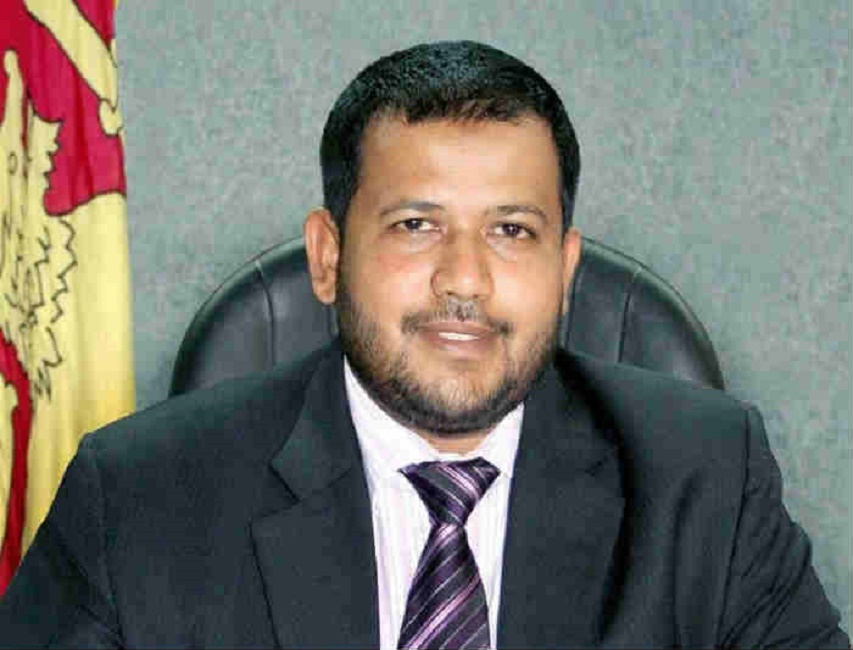
Parliament to begin Rishad's NCM debate on June18
The debate on the No-Confidence Motion (NCM) against Minister of Industry and Commerce Rishad Bathiudeen will be held on the 18th and 19th of June, Speaker Karu Jayasuriya informed parliament today.
It was reported that during the party leader’s meeting held yesterday, several opposition party leaders had voiced their displeasure over the dates of the debate. The Joint Opposition had demanded that the NCM debate be held on the 5th and 6th of June.
Speaker Karu Jayasuriya however, pointed out it was not up to him to fix the dates and that it was up to the Government to do so in consultation with Party Leaders.
Accordingly, the Speaker said the dates for the NCM debate for 18th and 19th of June and requested the opposition parties to accept it.
Meanwhile, Parliamentarian Mahindananda Aluthgamage, attending a media briefing yesterday, said that if the government postpones the no-confidence motion against Minister Bathiudeen, they would continue to obstruct the proceedings of the parliament.
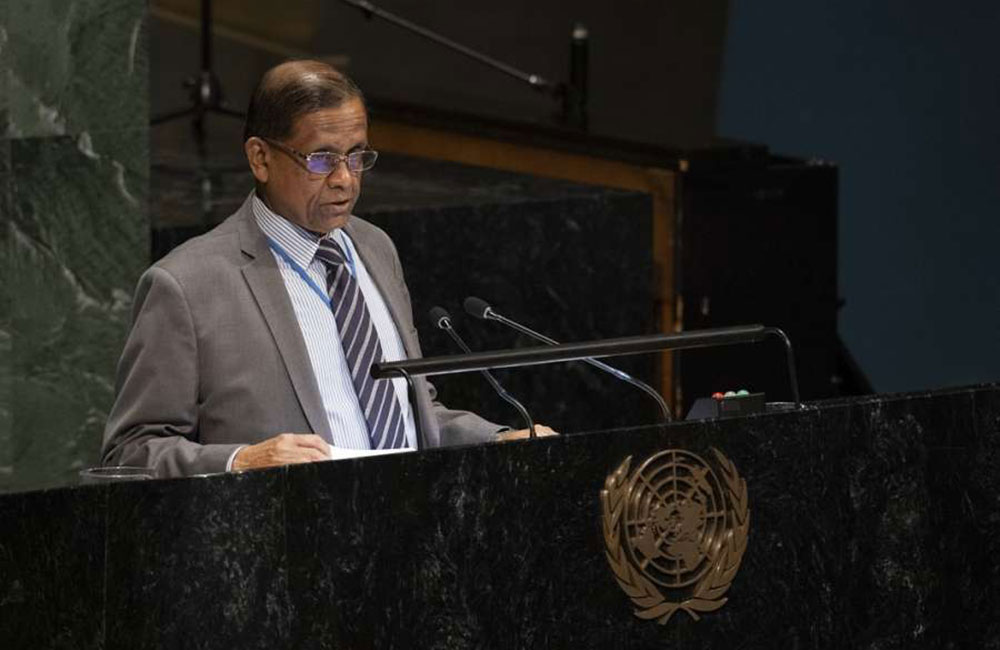
Sri Lanka's top envoy rejects United Nations' special joint statement
Responding to the joint statement issued by the United Nations Special Advisor on the Prevention of Genocide Adama Dieng and the United Nations Special Advisor on the Responsibility to Protect Karen Smith on 13 May 2019, Sri Lanka’s Permanent Representative to the United Nations in New York Ambassador Dr Rohan Perera stated that their prejudiced statement only serves to sensationalize issues at a time the government is taking stringent measures to maintain law and order and quell unrest in the interest of safety of all and that it skews the situation on the ground and interprets post-April 21 events through a narrow prism of stereotypical labels, while disregarding the deeper and more nuanced issues at play.
The full text of the response is appended below:
Mr. Adama Dieng
United Nations Special Advisor on the Prevention of Genocide
Mrs Karen Smith
United Nations Special Advisor on the Responsibility to Protect
Dear Mr. Dieng and Mrs. Smith,
The Government of Sri Lanka has carefully reviewed your joint statement of 13 May 2019, issued as a note to correspondents, where you have expressed alarm on the ‘growing acts of violence on the basis of religion’ in Sri Lanka. While noting your concerns, we were taken aback by your oversimplified narrative of events that are nuanced and complex in nature.
For the past decade, the people of Sri Lanka had been enjoying their hard-won peace and freedoms, and had embarked on the arduous path of reconciliation and national healing after nearly three decades of struggling against separatist terrorism. As has been perpetrated by ruthless terrorist groups inspired by ISIL/ Da’esh with global reach in many parts of the world, the horrendous Easter Sunday attacks were intended to create division among us and destroy the very fabric of our multi-ethnic, multi-religious and multi-cultural society, and deal an intentional blow to our economy. All peace-loving citizens of Sri Lanka are still trying to come to terms with the shock and aftermath.
While we mourn the loss of innocent lives, the support and solidarity from our friends in the international community, including the UN Secretary-General, have been overwhelming. We were reminded that we are fighting a common adversary in terrorism, and its associated manifestations of radicalization and violent extremism, which had taken many innocent lives from across many parts of the world in recent times.
In this context, it is quite insensitive and ill-conceived that you did not consider it important to share your concerns with the Sri Lankan government first, before going public with your statement. This would have also been in keeping with the key objectives of your respective mandates, i.e. to provide early warning and advocacy. We are particularly disappointed that your statement comes at a time when Sri Lanka has been following a well-acknowledged open and constructive engagement with the UN System and its human rights mechanism, including with the special procedures and mandate holders for the past several years. Eight such Special Procedures have visited Sri Lanka in the last four years which ranked among a handful of countries with regard to accommodating such engagement. In this context and spirit, we would have welcomed any constructive criticism or observation from your offices as well. Your prejudiced action only serves to sensationalize issues at a time the government is taking stringent measures to maintain law and order and quell unrest in the interest of safety of all.
I am constrained to state that your statement demonstrates a limited understanding of events and is an expression of preconceived opinions. By stating that “the special advisors noted a recent spate of attacks against Muslim and Christian communities in Sri Lanka, a majority Buddhist country”, and continuing that “the recent violence in Sri Lanka has highlighted a growing influence of nationalists and extremist views of identity in the Asia Region, putting religious minorities at risk”, your statement generalizes events and mischaracterizes facts, which is irresponsible as it is dangerous, and does not conform with the independent nature and credibility of your offices.
Indeed, even the conflation of the Easter Sunday attacks that killed over 250 of our loved ones, mostly from Sri Lanka’s Catholic community, as well as 45 foreign visitors to Sri Lanka, and the swiftly quelled communal violence during the weekend of 11 May, is unexpected from your august offices. It was made manifestly clear that the world recognized that the Easter Sunday attacks were carried out by Islamic fundamentalists, having been influenced and inspired by ISIS, and were not a result of any local conditions. These attacks, mainly against Christians at prayer, form part of global trends of radicalization and extremism.
The almost two and half million Muslims who comprise about 10% of the 22 million population of Sri Lanka have lived in harmony amongst the Buddhist majority (over 70%) and other groups for over several centuries. Even amidst the gravest provocations during the 30 years separatist terrorist armed conflict in Sri Lanka, where sacred Buddhist and Islamic religious places were attacked and devotees butchered, religion has not been a cause for violence. Hence, the above statement skews the situation on the ground and interprets post-April 21 events through a narrow prism of stereotypical labels, while disregarding the deeper and more nuanced issues at play.
It is pertinent to place on record that a number of precautionary measures were put in place by the government immediately following the attacks, such as, providing additional security protection to all places of worship, limiting access to social media to halt the spread of false information for brief periods of sensitivity, and banning full face covering that hinders identification. It is regrettable that, in spite of these measures, a handful of isolated incidents broke out in some parts of the country causing the tragic death of one person. Within a few hours, the Government took swift action to thwart any escalation of violence and perpetrators were promptly arrested and subject to due process.
Sri Lanka is indeed a ‘pluralistic society’, and freedom of religion or belief, freedom of movement within the country and choice of residence has been guaranteed by the Constitution. Considerable work has been undertaken by the Government also with the support of the UN system to preserve inter-faith and inter-religious harmony and inclusivity, to which you too have alluded. This was amply demonstrated when there were calls made not only by political leadership but also by the Archbishop of Colombo and other Buddhist, Hindu and Islam clergy, for peace and non-violence among communities.
Wittingly or unwittingly, one should be careful not to contribute to diminishing the enormity of the acts of terror that shook Sri Lanka, to a domestic scuffle between religious bigots, or taint it as a result of “local discriminatory practices that perpetuate religious intolerance and violence”, which is furthest from the ground reality. Given that this is clearly an offspring or part of global terror network, better understanding and solidarity of all partners are of essence to eradicate this menace. Ill-timed statements from responsible authorities will only serve to strengthen the hands of parties with vested interests and extremist elements determined to veer Sri Lanka from the path of peace and development. The need of the hour is for measured advice and support of experts of your good offices to help clarify matters in order for Sri Lanka and all her people to face new challenges arising from violent extremism.
We seek your understanding and support at this difficult time for our country and all its people.
Yours sincerely,
Dr. Rohan Perera
Ambassador/Permanent Representative
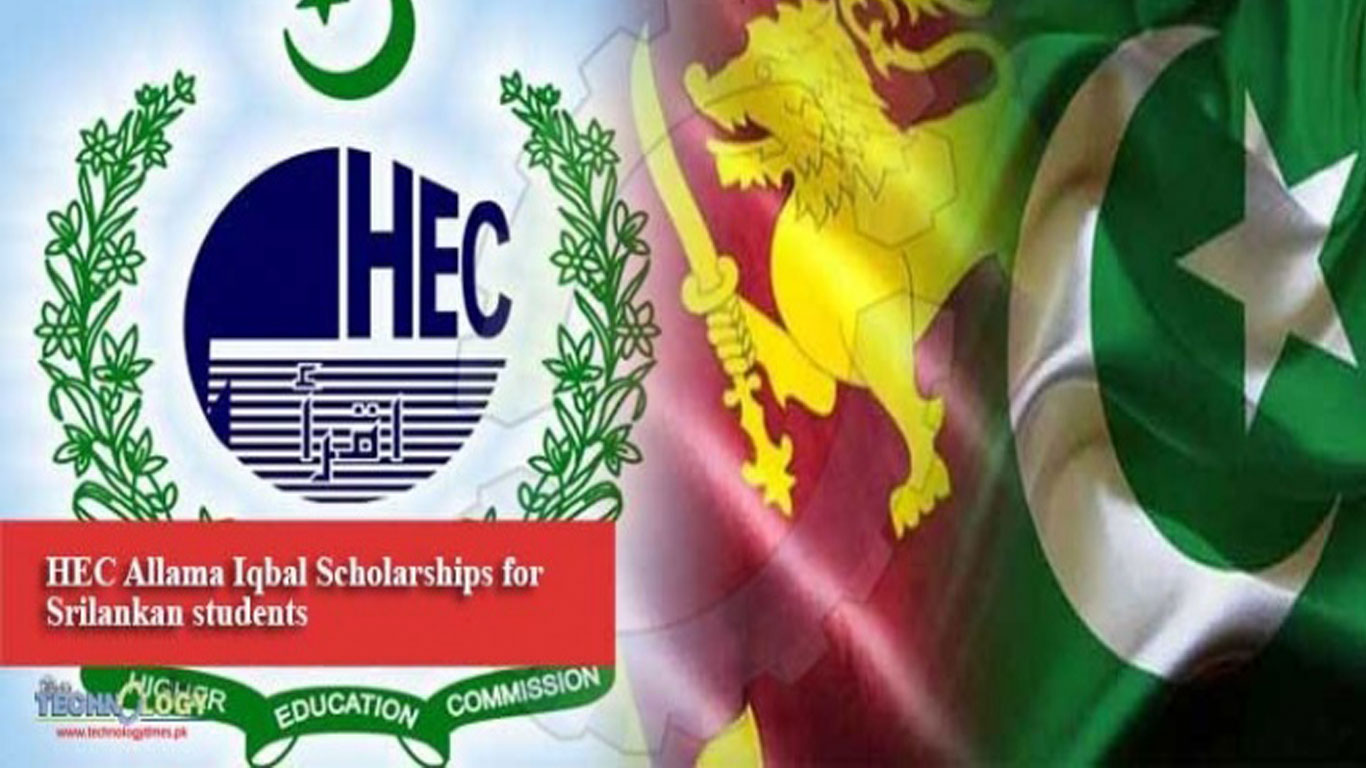
Pakistan extends date of Allama Iqbal scholarships for Sri Lankan students till May 31
The Higher Education Commission (HEC) of Pakistan has extended the date of ‘Allama Iqbal Scholarships’ till May 31 for as many as 1000 Sri Lankan students to study in the best higher educational institutions in the country.
According to the HEC official on Thursday, the scholarships would be provided under the Pakistan-Sri Lanka Higher Education Cooperation Programme.
The Scholarship offers full tuition fee of the Programme for study in Pakistani universities, accommodation allowance, study allowance, books allowance, and one-time return air-ticket, sources informed.
The official further informed that the scholarships were spread over next five years and provided an excellent opportunity for 1000 Sri Lankan students to visit Pakistan and pursue undergraduate, postgraduate, and doctoral degree programs in Engineering Science, Basic and Natural Sciences, and Social Sciences.
The programme aimed to promote an effective exchange of knowledge and better understanding of cultures and tradition between Sri Lankan and Pakistani students, he added.
The selected candidates will study in top-ranked Pakistani universities, learn about Pakistani society and values, acquire leadership skills, and help educate fellow Pakistani students and community groups about their country and culture, he said.
The Allama Iqbal Scholarships were part of HEC’s internationalization initiative to encourage international students to study in Pakistan. The women candidates were highly encouraged to apply for these scholarships.
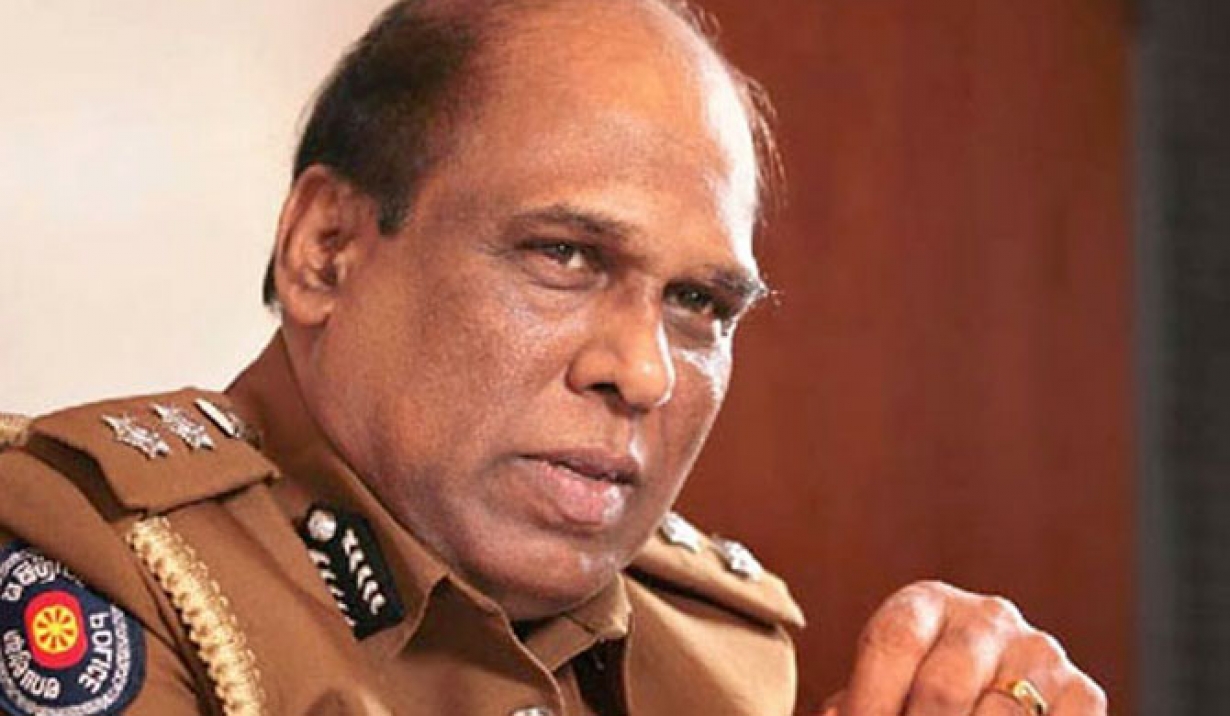
Thajudeen murder case; AG files charges against former senior DIG
The Attorney General has filed charges against former Senior DIG, Anura Senanayake for deliberately concealing information in connection to the murder of former Sri Lankan rugby star Wasim Thajudeen.
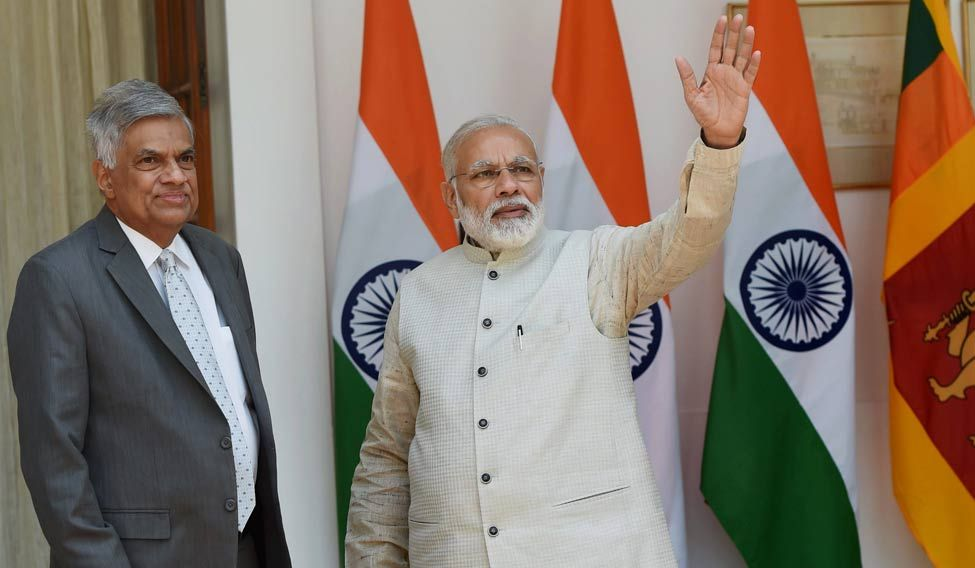
Wickremesinghe congratulates Modi on landslide election win
Sri Lankan Prime Minister Ranil Wickremesinghe on Thursday congratulated his Indian counterpart, Narendra Modi, as the BJP-led NDA government looks all set to form the government for the second term at the Centre.
"Congratulations to @narendramodi on a magnificent victory! We look forward to working closely with you," Wickremesinghe tweeted.

As counting of the ballots for 542 Lok Sabha seats for the world's largest democracy is underway, the BJP seems to lead with 348 seats while the Indian National Congress is placed second in the list with 90 seats, as per the official Election Commission trends.
In the 2014 general elections, the BJP had won 282 seats, 10 more than the halfway mark, on its own and crossed the 300-mark with its allies.
If the trends convert into seats, this would be the first time in more than 40 years in India that a party with a majority on its own will be coming back to power with a similar showing.
The Lok Sabha polls that commenced on April 11 and wrapped up on May 19, saw approximately 900 million voters exercising their right to franchise and deciding the fate of around 8,000 candidates across 542 seats in the country. Out of these candidates, 724 were women and four were transgenders.
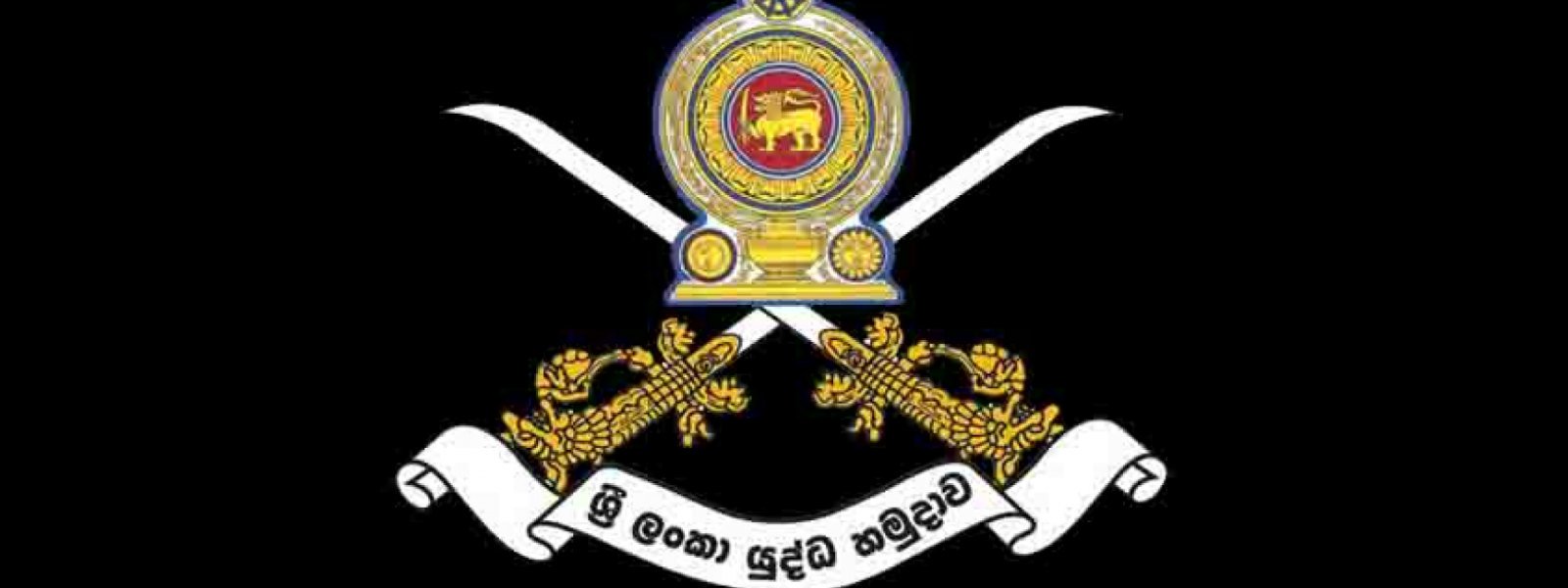
Army celebrates a 'Decade of Peace'
The Sri Lanka Army held a series of events to mark the peaceful decade of peace since the end of the war.
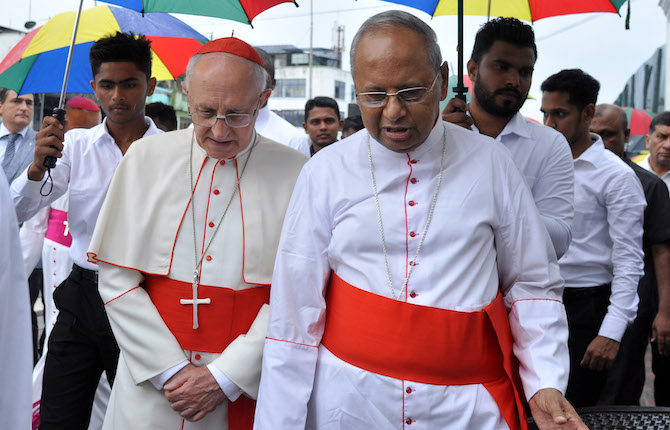
Top Vatican envoy inspects aftermath of Sri Lanka attacks
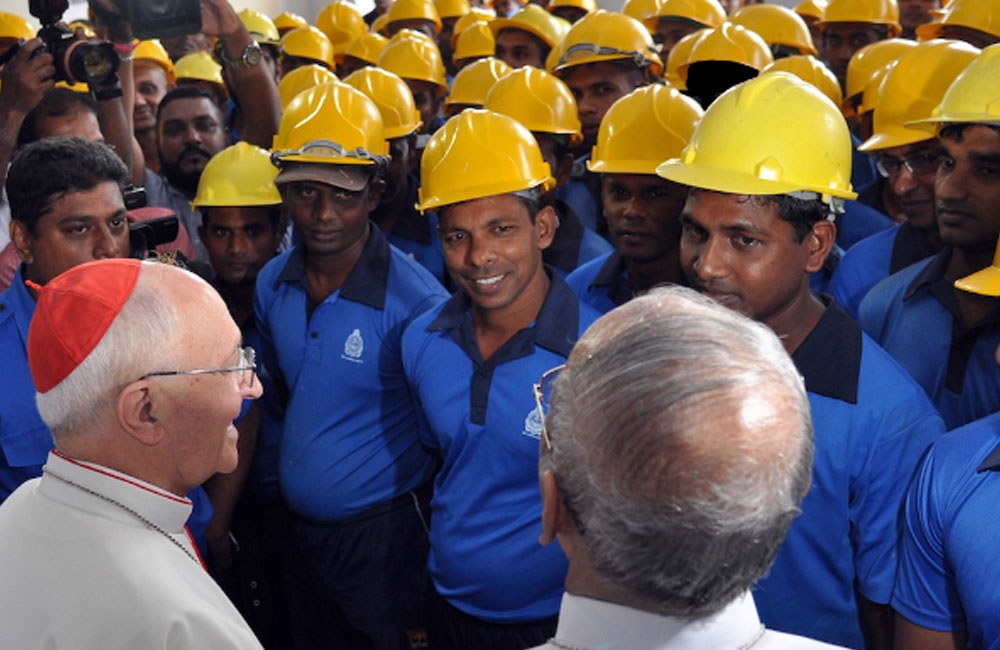
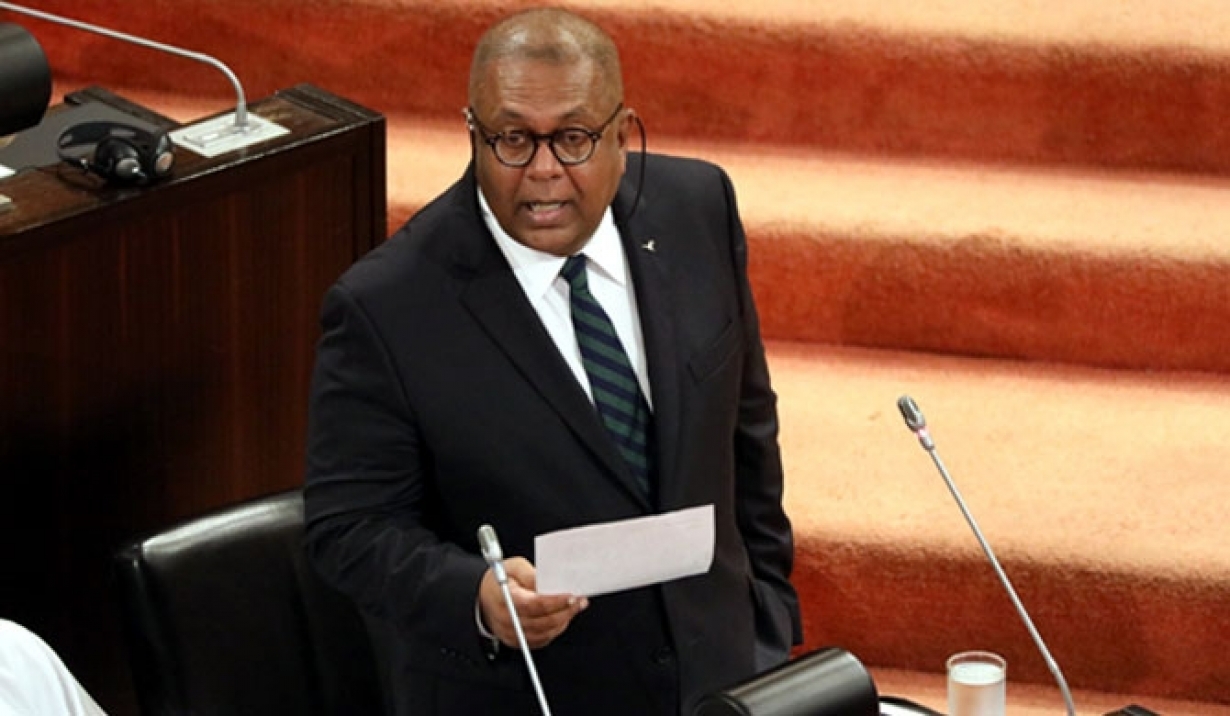
Sri Lankan economy linked to all communities: Mangala
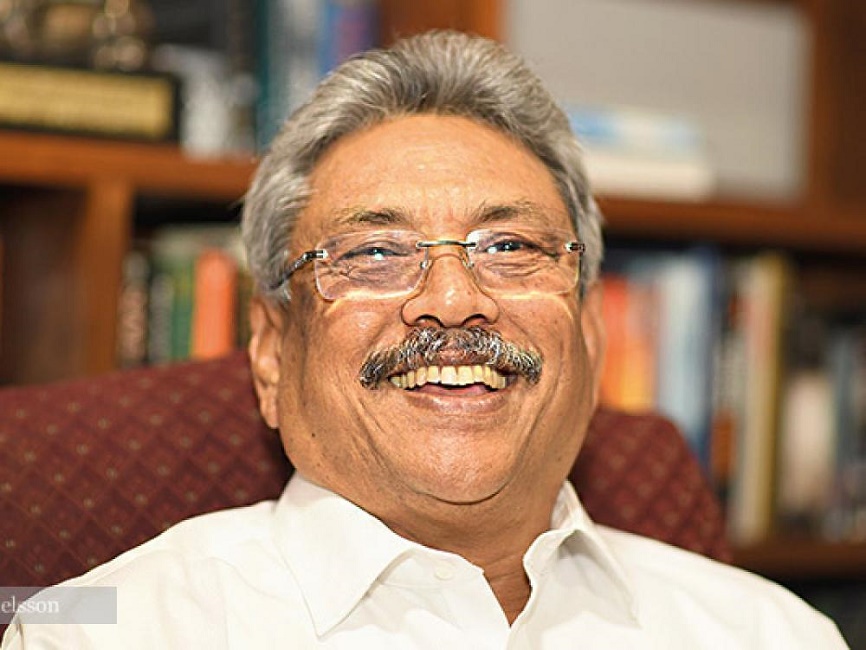
DA Rajapaksa Museum case: Special High Court to commence hearing from June 19
The Permanent High Court-at-Bar has decided to commence hearing the case filed against the former Secretary to the Ministry Defence, Gotabaya Rajapaksa, in connection to the misappropriation of public funds used to construct the D.A. Rajapaksa Museum, on the 19th of June.
The order was delivered by the three-judge bench comprising judges Sampath Abeykoon, Sampath Wijeratne, and Champa Janaki Rajaratne this morning (23).
The Special High Court also issued summons on four defendants of the case to appear before the court on the 19th of June.
The Attorney General had filed the case against Gotabaya Rajapaksa, the former Chairman of Land Reclamation and Development Authority (LRDA) Prasad Harshana de Silva and five others for allegedly misappropriating state funds amounting to Rs 49 million for the construction of the D.A. Rajapaksa Museum and Memorial in Medamulana.
Page 315 of 510